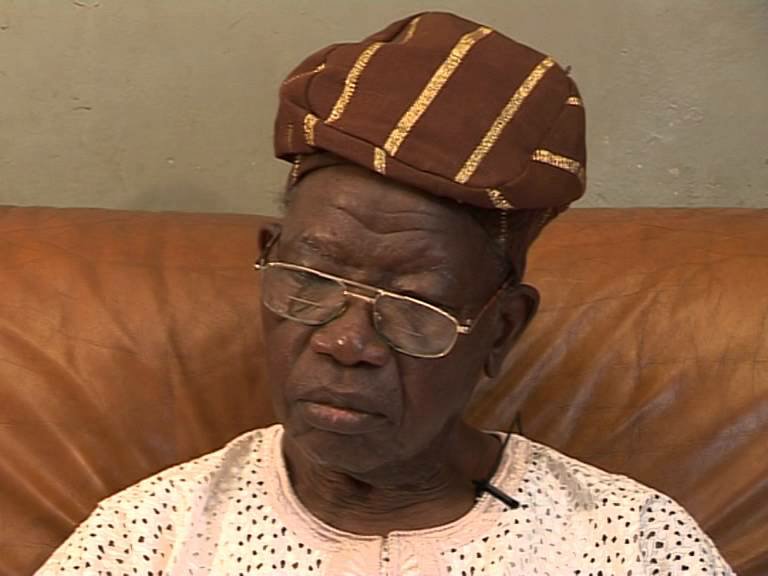
Whenever the history of Lagos is chronicled, the contributions of one man to the making and moulding of the state will occupy a golden chapter. As the first elected governor of Lagos State, Alhaji Lateef Kayode Jakande had the duty of laying a foundation and setting a template for others to follow. He worked hard, displayed selflessness, humility and modesty that is rare among Nigerian politicians.
As he made it to the nonagenarian status on July 23, Alhaji Jakande whose footprints on the sands of development in the state are very visible deserves all the accolades that have been showered on him. Throughout the Second Republic when he presided over affairs in the ‘State of aquatic splendour’, he made very little demands on the treasury, opting to live in his modest Bishop Street, Ilupeju, Lagos, residence, riding his old, reliable Toyota Crown car that he did not deem fit to change for his four years in office but concerning himself with the welfare of the common man in his state.
Despite sharing jurisdiction with the Federal Government, Alhaji Jakande had no time for undue rivalry, partisan bickering and fruitless flexing of muscles with the Shehu Shagari-led administration.
It was obvious that he stood out in the 1979-1983 class of governors. The result was evident when he sought another term in the office. While there was bedlam in other states, including Oyo, Ogun. Ondo and (then) Bendel as other aspirants in the Unity Party of Nigeria (UPN) that controlled the states chose to fight to the finish, the situation was different in Lagos. Only one Hakeem Giwa thought he stood any chance against Jakande who had emerged a colossus in Lagos politics on account of his performance.
And, for his effort, Giwa was rewarded with a miserly one vote in the primary election. It was about that time that he and many in and outside the UPN began to refer to Jakande as Baba Kekere, that is the likely successor to his leader, Chief Obafemi Awolowo. That might have been flattering as he had no political structure outside on which to erect such an ambition. He might have been loyal, dedicated and conscientious, indeed noticed across the country, but his politics was at best narrow and restricted.
The rivalry that arose from that ambition and the Oyo State governor’s Chief Bola Ige set the stage for the ‘Night of the Long Knives’ clash of both men at the 1981 UPN National Executive Committee meeting in Yola, then Gongola State, where Jakande was said to have made a bid to get Ige expelled from the party. Ige survived the plot.
In Lagos, Jakande is easily remembered for establishing the Lagos State University (LASU), building low cost housing estates in Epe, Badagry, Ikorodu, Abesan, Ijaye, Oke Afa, Iponri, Ipaja, Abule NlA, Iba, Isheri, Orisigun, Dolphin, Surulere and Anikantamo. It was a bold move to tackle the housing deficit in the city.
Another ambitious project he embarked on was the free education programme. Whereas it was a cardinal programme of his party that other states controlled by the party executed, he had a peculiar challenge that only a man like Alhaji Jakande could have successfully combatted. He inherited an education scheme that saw primary and secondary schools running morning and afternoon shifts. Not daunted, Jakande embarked immediately on building new schools and classrooms and abolished the shift system in no time. In no time too, Jakande had increased the number of secondary schools from 105 to 223. He constructed 22,000 classroom blocks. Many have criticised the quality of the schools without considering the huge challenge that made quantity more imperative in the circumstances. In a hurry to develop Lagos, he was not satisfied that there were only eight local government areas, and thus created 23, which however could not survive the return of the military in December 1983.
Alhaji Lateef Kayode Jakande is a model that political administrators desirous of success should study. Born in Epetedo, Lagos, July 23, 1929, his formal education stopped at secondary school, starting at Kings College and completed at Ilesa Grammar School. He, at 20, joined the Daily Service as a reporter before moving to the Nigerian Tribune, a newspaper owned by Chief Awolowo
In 1956, he was appointed the paper’s editor-in-chief and remained in the position until his resignation in 1975, to establish the John West publications. As an ardent follower of Chief Awolowo, one who was tried along and jailed seven years with the founder of the Action Group (AG) in 1963, he was rewarded with the UPN ticket in 1979. But, if he is an administrative genius, his foray into national politics after Awo’s demise fell below expectation. In 1991, he lost control of Lagos when his protégé, Professor Femi Agbalajobi failed to wrest the Social Democratic Party (SDP) governorship ticket from Chief Dapo Sarumi. Consequently, the rival National Republican Convention (NRC) took over the state. All attempts by his admirers to justify his participation in the Abacha military administration have failed to resurrect a dead political career.
But, whatever his later political misadventures might suggest, Alhaji Jakande remains a hero; a great Nigerian.
You may be interested

PSG To Reignite Interest In Osimhen
Webby - December 21, 2024Paris Saint-Germain have contacted Napoli to discuss signing Victor Osimhen in January, according to reports in France.It is reported that…

Arteta Provides Injury Updates On Five Arsenal Players Ahead Palace Clash
Webby - December 20, 2024Arsenal manager Mikel Arteta has revealed that Declan Rice and Riccardo Calafiori are both available to be in the Gunners…

Carabao Cup: Spurs Edge Man United In Seven-Goal Thriller To Reach Semi-finals
Webby - December 19, 2024Tottenham Hotspur edged Manchester United 4-3 in the quarter-finals of the Carabao Cup on Thursday.Spurs raced to a 3-0 lead…
















![American Pastor, David Wilson Seen Eating The Box Of Woman Who Isn’t His Wife [Video]](https://onlinenigeria.com/wp-content/uploads/2019/10/american-pastor-david-wilson-seen-eating-the-box-of-woman-who-isnt-his-wife-video-150x150.jpg)








